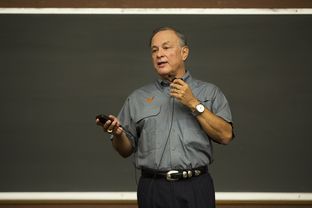Cascos: Voter Turnout in Texas "Should Embarrass Everyone"

Texans should be embarrassed by their state’s perennially low voter turnout figures, Secretary of State Carlos Cascos said late last week.
"Texas takes a lot of pride” in many things, he said. “We're certainly not number one in voting. That should embarrass everyone."
Cascos was speaking in Austin at “Texas Turnout” weekend, which the Texas Tribune hosted in partnership with the Society of News Design and the Knight Foundation.
Texas is a long way from tops in turnout.
Just 21 percent of voting age Texans, for instance, voted in this year’s primary elections — a lower rate than all but four states (Unlike Texas, each of those laggard states have closed primary systems, and three held no down-ballot races.).
And Texas ranked 48th among states— counting the District of Columbia — during the 2012 General Election.
Cascos called it the responsibility of candidates and political parties to bolster turnout, and he also called on those wanting improvement to build “that voting ethic” with their friends and family — by inviting them to the polls.
Cascos sounded skeptical that Texas’ strict voter 2011 voter ID law — struck down by a U.S. appeals court last month as discriminatory — had discouraged minorities from voting. He suggested that a court-ordered relaxation of the rules this election would test whether that’s the case.
“Whatever number of voters that I hear are disenfranchised, I want to see if they get re-enfranchised,” he said. “I want to see if that’s really keeping people away from the polls. Or is it something else?”
A federal judge has ordered Texas to spend $2.5 million on voter outreach before November, roughly the amount it spent ahead of elections in 2013 and 2014 when the voter ID law first took effect.
*****
Here’s some news that’s sure to grab the attention of folks following legal wrangling over Texas’ strict voter ID law. A deadlocked U.S. Supreme Court on Wednesday denied North Carolina’s request to reinstate a range of strict voting restrictions — including a photo ID requirement — that an appeals court struck down last month.
The justices declined to halt the U.S. 4th Circuit Court of Appeals ruling that accused North Carolina lawmakers of targeting would-be African American voters “with almost surgical precision” in creating restrictions on voting.
The high court’s 4-4 ruling on Wednesday left the lower court’s opinion in place, illustrating the huge impact of the late Justice Antonin Scalia’s vacancy.
How does this bode for Texas Attorney General Ken Paxton as he prepares to ask the justices to review this state's law — also struck down as discriminatory?
That’s not clear, since the North Carolina case doesn’t compare apples-to-apples with Texas.
Rick Hasen, an elections expert at the University of California, Irvine School of Law, wrote on his blog Wednesday that North Carolina’s petition was “exceptionally weak” (The state waited 17 days to file for a stay, and then called it an “emergency.”)
But Hasen added: “there is very likely to be a 4-4 deadline on the merits” on many of the other cases working their way up to the court — which would leave appeals court rulings in tact.
“It also means that how the Court handles not only voting rights but a whole host of issues depends on the outcome of the presidential election. The Supreme Court really matters,” Hasen wrote.

